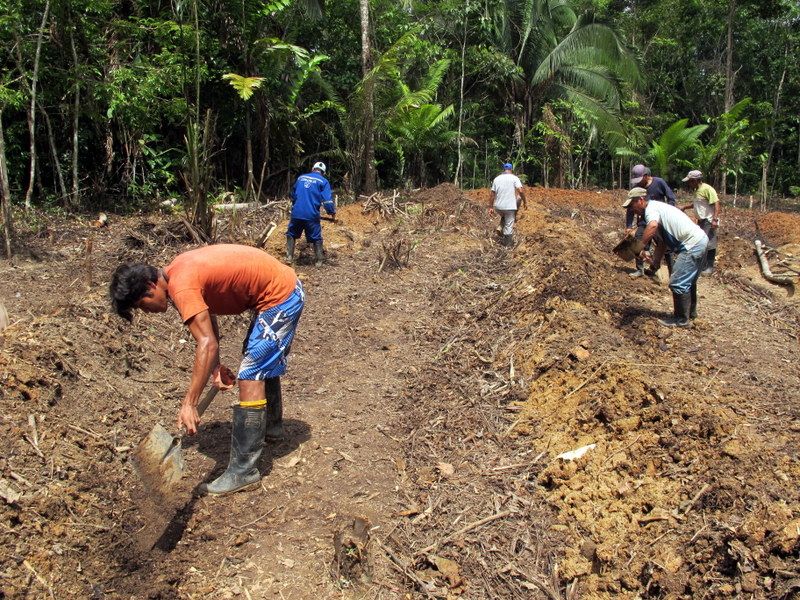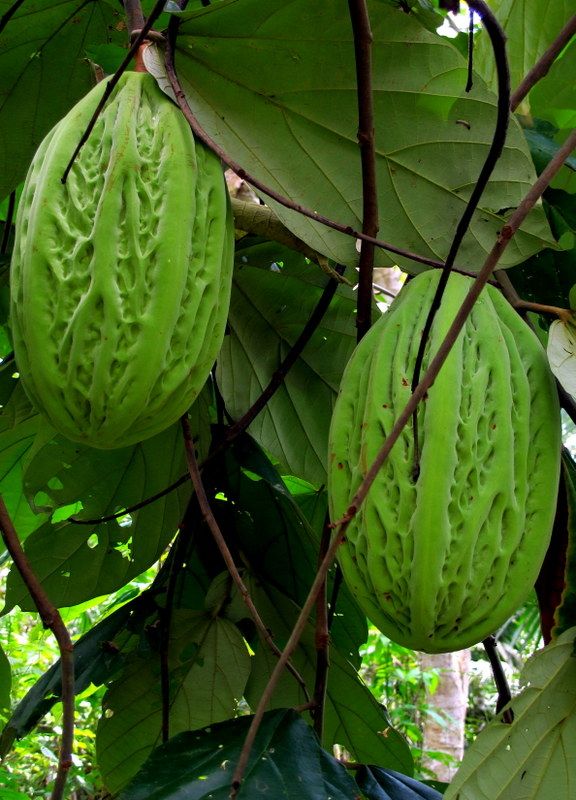Chaikuni Institute's mission of regenerating the degraded rainforest landscape and creating resilient local economies will be achieved through reforestation of abandoned land and ecosocial community outreach initiatives in mestizo and indigenous villages. Our aim is to create a multifunctional agroforestry landscape matrix that simultaneously provides ecological, social, climatological and economic resilience for the whole region.

In partnership with Eco-Ola Superfoods we have engaged with our local community of Tres Unidos to develop an ecosocial entrepreneurship initiative based on successional agroforestry. Ecosocial entrepreneurship is an innovative way to regenerate both ecological and social health through holisic design and community engagement. Through the creation of a system of planned, managed forests which are designed to mimic the ecological functions and structure of the preexisting climax vegetation for the area (i.e. terra firme Rainforest habitat), but using species which have economic benefit to the local community, both ecological and social regeneration is acheived. By integrating appropriate crops, in the right place at the right time we can mimic and even expedite the process of natural ecological succession.
We have always prioritised the purchase of crops produced by our neighbours: bananas, plantains, cassava, papayas and cacao are all sourced locally. We prefer to buy locally in order to support the local economy, obtain chemical-free produce and to limit the amount of food that must be transported in from Iquitos which is both costly and energy intensive.

This initiative, in addition to creating a landscape dominated by rich agroforestry matrix will provide sustainable livelihoods for local smallholders and crops at mutually beneficial prices for Chaikuni, the Temple and Eco-Ola. So, you may ask, how does this differ from other 'sustainable development' models that incentivise rural farmers to grow cash crops? First and foremost is the prioritization of the subsistence needs of the farmer. The cultivation of cash-crops should always be in addition to, never to the exclusion of subsistence crops. Through skillful sequencing of crop succession and guaranteed markets it is possible to develop a sustainable polyculture that simultaneously meets the farmer's wellbeing whilst also allowing him to cultivate a variety of cash crops. The extra revenue provided can go to education, healthcare, infrastructure and for micro-investment initiatives using the raw materials such as artisanal enterprises including soap-making, handicrafts, cheese-making, oil and essential oil distillation and the manufacture of super-food snacks.
This phase will act as a pilot project which can then be expanded to other smallholders in our vicinity and to provide a model for the broader community outreach work that Chaikuni will be spearheading in the coming years throughout the Peruvian Amazon. Later in the year we are planning to run a similar program for indigenous Shipibo communities in the Ucayali. Through such initiatives we are helping to promote regenerative development for the region and a new form of business. One, which rather than focusing exclusively on ''the bottom line'' (i.e. financial profitability), is dedicated to meeting a multi-bottom line that considers ecological, social, financial, cultural, spiritual, educational, nutritional and health requirements equally.
Co-Founded by Carla Noain and William Park, Eco-Ola was born in the Peruvian Amazon. Our Mission: Producing delectable nutritious foods for our customers while preserving the biodiversity of the surrounding rainforest and improving the lands and the lives of our farmers. A good farm is not a wilderness, but it does allow corridors for the movement of wildlife and prevents devastation from the fragmentation of habitats. Our farms are part of the eco-system, not something imposed upon it. Our agronomists lead the way in innovative methods of nurturing these tropical foods so as to maximize yields and nutritional content. We actually improve the land while we raise the standard of living of the farmers who are part of the Eco-Ola family. More and more studies show that crops grown without petro-chemical fertilizers and bio-cides have more nutrition than conventionally grown crops. They taste better too! Every aspect of our farming practices is viewable to the public. We’re proud to be a company that our customers can feel good about supporting.

